Get the latest financial news, insights and expert analysis from our award-winning MoneyWeek team, to help you understand what really matters when it comes to your finances.
You are now subscribed
Your newsletter sign-up was successful
Want to add more newsletters?

Twice daily
MoneyWeek
Get the latest financial news, insights and expert analysis from our award-winning MoneyWeek team, to help you understand what really matters when it comes to your finances.

Four times a week
Look After My Bills
Sign up to our free money-saving newsletter, filled with the latest news and expert advice to help you find the best tips and deals for managing your bills. Start saving today!
The credit crunch has been good for at least one man this year. BBC business editor Robert Peston has become one of the most recognisable faces on TV, and his
, about the rise of the super-rich, is "the most riveting book on finance you may ever bother to read", says The Scotsman. Peston navigates topics such as the role of hedge funds and the rise of subprime borrowing "with ease", says Simon Jenkins in The Sunday Times. He argues that the blame for today's mess should not be laid at the feet of capitalism's biggest rain-makers, with whom, adds Jenkins, "he seems almost in love". Instead, it is governments and ineffective regulators who should be held to account. Whether you agree or not, this is "essential reading" for an understanding of the world of "turbo capitalism", concludes The Guardian's Peter Wilby.
MoneyWeek
Subscribe to MoneyWeek today and get your first six magazine issues absolutely FREE

Sign up to Money Morning
Don't miss the latest investment and personal finances news, market analysis, plus money-saving tips with our free twice-daily newsletter
Don't miss the latest investment and personal finances news, market analysis, plus money-saving tips with our free twice-daily newsletter
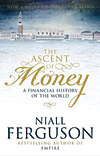
Another financial figure who has barely been off our screens is Harvard professor, Niall Ferguson.
is his "account of moolah from the Incas to the credit crunch", says The Observer's Tristram Hunt. With "scores of fascinating details", he tackles the role of money "with great clarity and wit", says Hamish McRae in The Independent. His theme that today's crisis can only be understood by having a keen grasp of previous ones is compelling, although as Hunt notes, the book uses "barely concealed TV-script format" (it accompanies a Channel 4 series). His academic colleagues may "disapprove", says Stephanie Flanders on Thisismoney.co.uk, but Ferguson "has plenty to tell the rest of us".
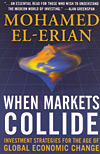
Learning about the causes of the crunch is one thing but what do we do now? That's what Mohammed El-Erian's
tries to answer. Winner of the 2008 FT and Goldman Sachs business book of the year award, this is a "lucid" account of the credit crisis and how to survive it, says the FT's Andrew Hill. El-Erian, who has worked at the IMF and run Harvard University's $35bn endowment fund, not only analyses what's gone wrong but illuminates the shift in power from West to East and offers "tips on how to allocate your assets", says Fareed Zakaria in Newsweek.
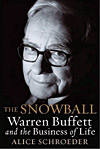
Warren Buffett has been describing derivatives as "weapons of mass financial destruction" for years. Alice Schroeder's biography,
: Warren Buffett and the Business of Life "provides some clues" to his success, says Richard Lambert in the Financial Times, such as his "single-minded determination from an early age to become very rich" he sold chewing gum door-to-door aged six. Buffett emerges as "unorthodox, honest, gifted and in many ways admirable", says Ruth Sutherland in The Observer, but, although Schroeder gets "closer than anyone" to explaining how he rose to the top, she says "little about why", says Dan Roberts in The Daily Telegraph. However, until the man himself writes an autobiography, this is the most in-depth look at his life so far.
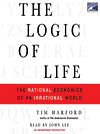
If you'd rather escape the credit crunch altogether, then
: The Rational Economics of an Irrational World by Tim Harford proves that "economists really can explain life, even if they can't predict a recession", reckons McRae. Similarly to Freakonomics , The Logic of Life draws on the work of important economists to explain the economics of everything. If you'd like to know "how to win at poker, avoid a nuclear holocaust, scoop the marriage market, work out why your neighbourhood is overpriced and why America experienced an 'oral sex epidemic' in the 1990s", this is the book for you, says Ed Smith in The Daily Telegraph.
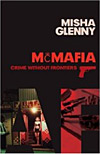
For the real dark side of the boom years, turn to Misha Glenny's
. Dealing with global-scale organised crime, it's a "well-sustained narrative dealing seamlessly, if dismayingly, with the tricks, motives and rewards of the new global underground and the impotence of governments in tackling it successfully", says Cal McCrystal in The Independent. Glenny argues that prohibition is the main driver of the shadow economy, which now accounts for 15%-20% of the world's turnover, says Jonathan Sumption in The Spectator. The puritanical attitude of the author, who seems to put more moral blame on Western consumerism than on the criminals, is a small price to pay for a book that is "informative and eye-opening at every page".
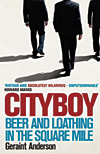
One book that drew a lot of attention this year was Geraint Anderson's
Cityboy: Beer and Loathing in the Square Mile
, an expos of the City's dirty secrets. Or was it? asks Chris Blackhurst in the Evening Standard. Anderson claimed the book was 80% truth but which 80%? "The £25,000 private jet trip to Ibiza where he's met by a drug-dealer and two naked prostitutes in a stretch limo? Or the account of insider trading?" If you can stand Anderson's brash turn of phrase, it's still worth reading, reckons Blackhurst, if only to have your worst suspicions confirmed about the "scum" that work in the City.

But for a much more amusing and arguably more insightful account of the financial world's vast hubris, you would be much better offreading Charles Peattie and Russell Taylor'sThe Best of Alex 2008, the latest collection of the Alex cartoons published in The Daily Telegraph - and which appear in every issue of MoneyWeek.
Get the latest financial news, insights and expert analysis from our award-winning MoneyWeek team, to help you understand what really matters when it comes to your finances.
MoneyWeek is written by a team of experienced and award-winning journalists, plus expert columnists. As well as daily digital news and features, MoneyWeek also publishes a weekly magazine, covering investing and personal finance. From share tips, pensions, gold to practical investment tips - we provide a round-up to help you make money and keep it.
-
 Japanese stocks rise on Takaichi’s snap election landslide
Japanese stocks rise on Takaichi’s snap election landslideJapan’s new prime minister Sanae Takaichi has won a landslide victory in a snap election, prompting optimism that her pro-growth agenda will benefit Japanese stocks
-
 Alphabet 'is planning a 100-year bond': would you back Google for 100 years?
Alphabet 'is planning a 100-year bond': would you back Google for 100 years?Google owner Alphabet is reported to be joining the rare century bond club


